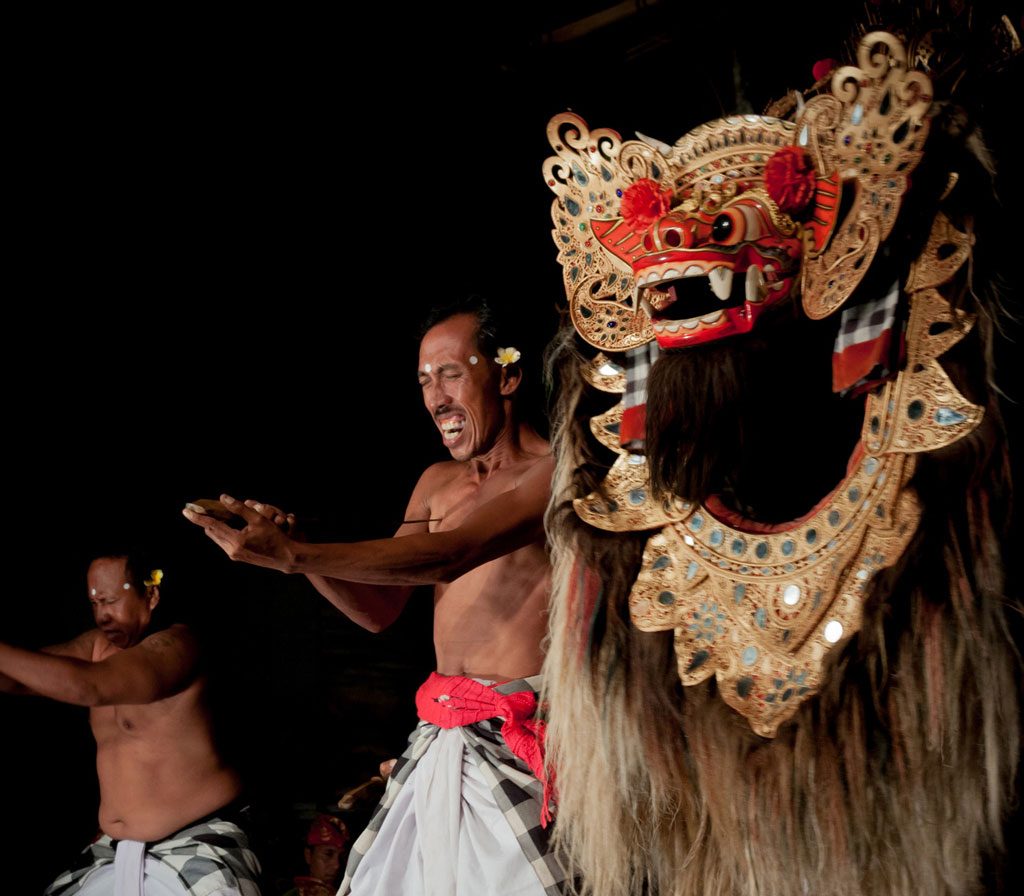Those who have watched the Barong and Rangda Dance, Bali’s dance performances, should have seen a group of men attempting to stab their chests with a sharp dagger. This segment ends with a priest who comes on stage, takes the dagger away before sprinkling the man with holy water that was offered to the Gods on a prayer before the performance began. All this action is called Ngurek – but is it merely a performance?

Ngurek is a tradition that has strong ties with several religious ceremonies in many villages in Bali. Ngurek, which is also known as Ngunying, is an offering to Ida Sang Hyang Widhi Wasa (the Balinese’s passionate name for the Supreme God). Ngurek translates as making a hole using sharp object, hence Ngurek is a combination of stabbing and drilling the chest. The story of Ngurek dates back to the era when Bali had kingdoms.
Once upon a time, a King wanted to make a procession to show gratitude to the almighty creator. A ceremony organised by his soldiers began with cockfighting, dances, all accompanied with delightful music. Out of the ordinary, the procession entered higher ground when all his soldiers transcended into a state of trance and took their daggers out in preparation to stab and pierce their own chests.
Currently, Ngurek (or Ngunying) processions are still performed in several villages on some holy ceremonies. It is a devotion to God and only can be done when a person reaches a culmination point of spiritual consciousness. In Kesiman Village of Denpasar, at Pura Dalem Petilan Pangarebongan (a temple of the village) every six months according to the Balinese calendar, a Ngarebong ceremony is where some of the temple’s congregation seem to fall into a trance and Ngurek takes place. If you wish to witness this ceremony, get your Balinese traditional attire ready, because it is happening on Sunday, April 23rd, 2017.









